Pete’s Gear: 1959 or 1960 Gretsch 6128 Duo Jet
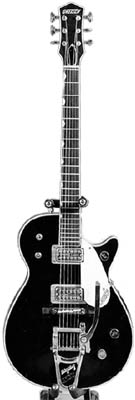
John Entwistle’s 1960 Gretsch Duo Jet (with Bigsby vibrato, unlike Pete’s), for reference.
For the early Quadrophenia-era UK gigs in October/November 1973, Pete Townshend used a black 1959 or 1960 Gretsch Duo Jet on stage for portions of these shows. (In addition, he used Polaris White 1961–1965 Gibson SG Specials and Gibson Les Paul Deluxes.)
Update (January 2011): Rosha Kasravi, spouse of Denny Laine, has indicated that she is in possession of this guitar, and Ed Roman Guitars of Las Vegas does have it available for sale.
Update (May 2010): Ed Roman Guitars of Las Vegas reportedly has this guitar for sale as autographed by Denny Laine, priced at US$150,000. They indicate it was owned by both Pete and Denny Laine and is a 1957 model (though Filter’Tron pickups weren’t introduced until 1958, and “zero fret” wasn’t introduced until 1959). See edroman.com for more information.
December 1973 Guitar magazine interview
PT: I find I can get the sound I want from any guitar. At the moment I’m using Gretsches with double-pole pick-ups. In the studio I use a Chet Atkins-type Gretsch. On stage I use the ‘Les Paul’ Gretsch. It’s the same shape as a Les Paul, but it sounds like a Gretsch. Those pick-ups have a fantastic sound. I think it’s mainly the set-up, you know. I’ve got amps specially made for me by Hi-Watt. They don’t make it any more for the open market, but they do especially for me. They’re incredibly robust, very loud, distorted in the right way, and clean when I want them to be clean. It’s the only common denominator about my sound. I swap guitars around. I use Gretsches, Gibsons and sometimes Fenders, for their strength. I know people like Ronnie Wood had their guitars especially made for them, custom made. Never been moved that way myself. I can get away with anything because the amps are so good.
Specification
The 1959/60 model featured:
- Two Filter’Tron humbucking pickups; volume control for each pickup, master volume, tone and pickup-selector switch;
- Single cutaway 13¼″ wide body, maple top
- Rosewood fretboard with thumbprint (neoclassic) inlays
- Zero-fret
- Trapeze tailpiece (no Bigsby vibrato)
By the November 1973 U.S. shows, Pete had switched to the Gibson Les Paul Deluxe for stage work.
Photo Gallery
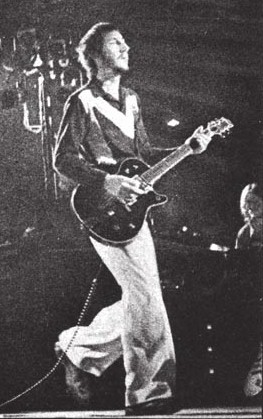
October/November 1973, with Gretsch Duo Jet, and a Gibson Les Paul Deluxe waiting in the wings.
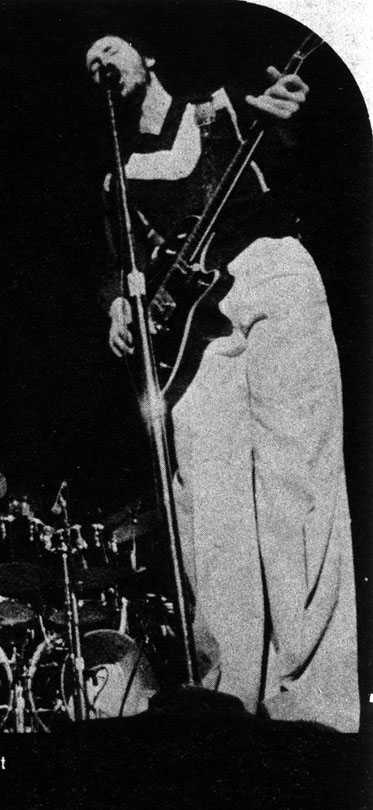
October/November 1973
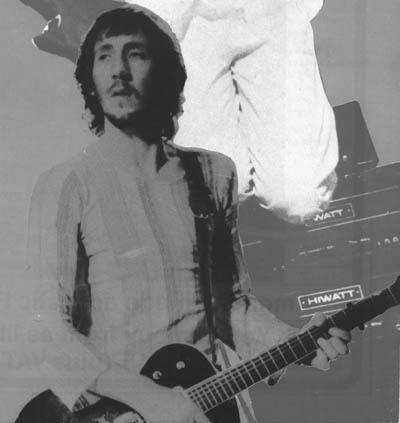
1973, with Dunlop capo at third fret.
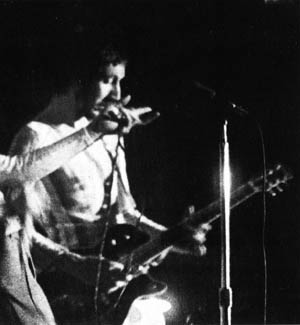
October/November 1973.
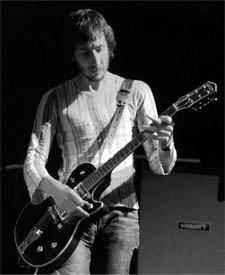
October/November 1973.
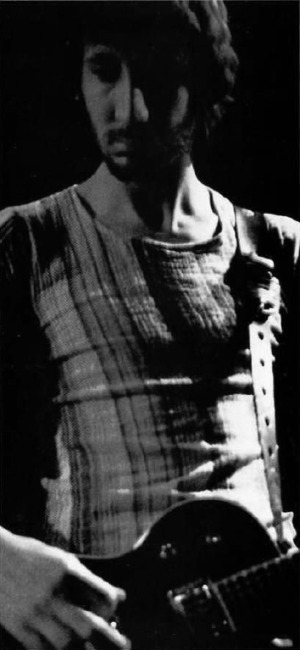
October/November 1973.
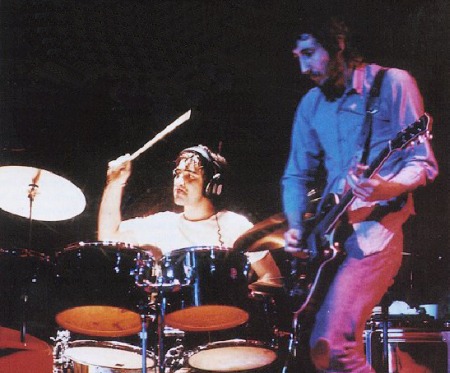
October/November 1973.
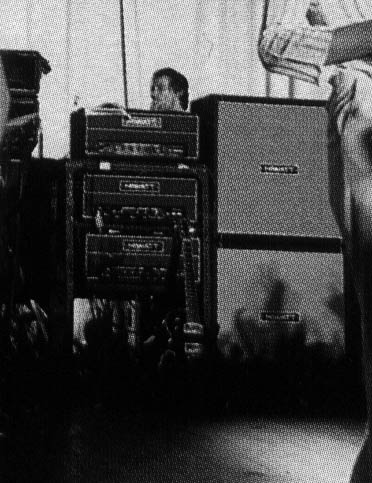
28 Oct. 1973, Gretsch Duo Jet leaning against amp rack, which has two Hiwatt DR103W amps (top) and one Hiwatt CP103 amp (bottom).
1968
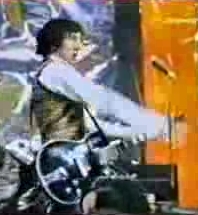
On 30 Dec. 1968, Pete used a black 1954–1956 Gretsch Duo Jet, miming to Magic Bus on French television Suprise Partie. This is not the same instrument Pete would use in 1973, though it is unknown whether Pete owned or borrowed this guitar for the television appearance.
Resources and Information
- For more information, see the Vintage Guitars Info: guitarhq.com/gretsch2.html#6128